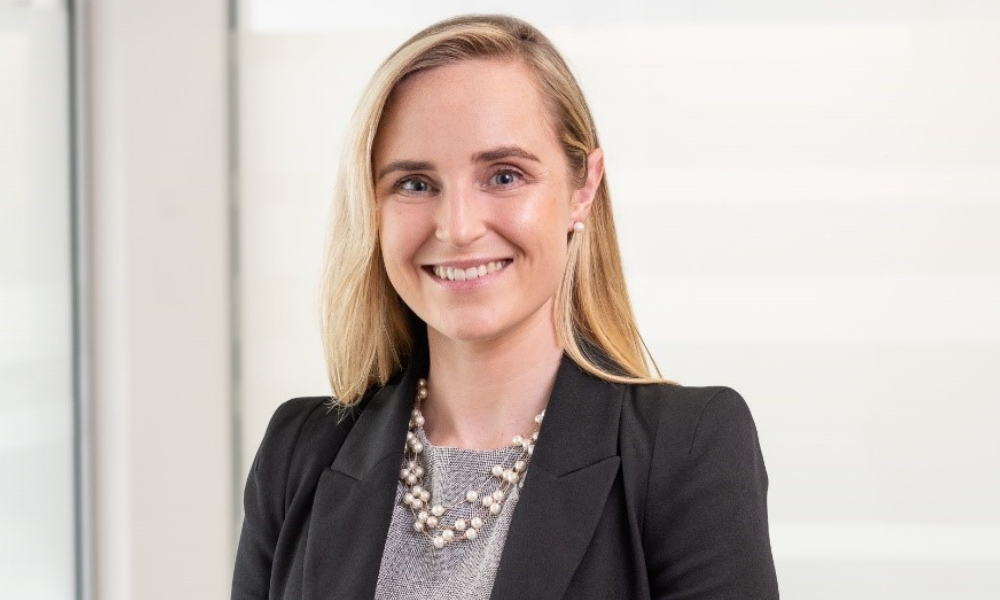
Anna Whalan discusses being adaptable after the earthquakes and the importance of workplace flexibility

Anna Whalan’s interest in law was piqued from a young age, when she would be studying the law and crime pages of the newspaper as a child. Although criminal work didn’t end up being the right course for her, law did, and she’s now enjoying the process of constantly learning as a litigator.
Whalan has gone on to hone her skills working in the UK and in Melbourne with top firm Herbert Smith Freehills – an experience that taught her a lot about class actions. Hailing from Canterbury has also taught her to adapt quickly to uncertainty – an experience that served her well when the COVID-19 pandemic hit last year.
In this interview, Whalan discusses her return to Rhodes & Co as an associate, embracing flexibility in the workplace, the domestic impact of COVID-19 and what would make professionals from her generation stay longer in their professions.
To take it back to a very early level, as a child I would pore over the law and crime pages of the newspaper – I am not sure quite what that says about my childhood! Though I soon realised I didn’t have the strong stomach for criminal work, I always enjoyed English, history and classics, and at law school I found the diversity of subject matter in the law to be very interesting.
I have two favourite things about my job. Firstly, I am always learning something new as the law evolves, and, in my litigation practice, as cases pop up with different fact patterns and issues. Secondly, it is rewarding to being able to assist people in important or difficult times in their lives.
There have been a few – very early on in my career, I got to work on some interesting and completely novel issues and questions of law after the earthquakes in Christchurch, and one such issue led to my first appearance in the Supreme Court, which was pretty exciting as a baby solicitor.
More recently, I spent a few years working in Victoria, and there I assisted in the defence of large-scale securities class actions. Class actions are a relatively undeveloped area in New Zealand, but are part of a growing industry in both Australia and the UK, and I grew to understand the legal framework there quite well.
I have just re-joined the firm after a few years overseas in the UK and Australia. There are some new faces, which is fantastic, but the majority of the firm has remained since I left, which I think shows the strong sense of collegiality at the firm. We have a great group of new solicitors who have recently joined the firm and I am looking forward to working with them.
How to eat an elephant – one bite at a time. Last year was all about adaptability and resiliency! For those from Canterbury, the ability to quickly adapt in uncertain and distressing times was a skill honed after the earthquakes, and I think there was a comfort in being able to know that we got through that, and we could get through this.
The interrelated themes of embracing both technology and flexible work. Law has traditionally been slow to embrace technology, but last year forced us to take advantage of the technological advances available to us. I personally think that a silver lining of the experience of the past 18 months has been that more companies and workers have been convinced that it can be productive to work from home at least some of the time and that high quality work can be carried out across teams with modern technology.
I do think that a physical office environment will always have an important role for a number of reasons: for instance, supervision and training is much easier and usually more effective in person. And from a firm culture perspective, it is more difficult to maintain connection in a workplace with a majority remote workforce. However, I believe that professionals from my generation are far more likely to stay in their professions longer term if technology and flexible work are more freely embraced by workplaces, and a hybrid remote/office work environment becomes more normalised.
Though it appears like the domestic economy is, fortunately, doing better than many people anticipated in many respects and most lawyers are busier than ever, COVID-19 is still a spectre raging in many areas of the world. This pandemic is likely to impact our economy and business of law for a while yet.
Seeing more of this beautiful country of ours, and perhaps, once vaccinated, being able to venture slightly further afield!